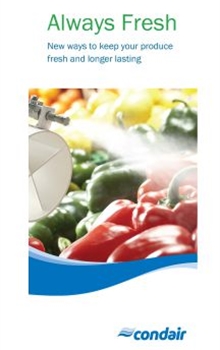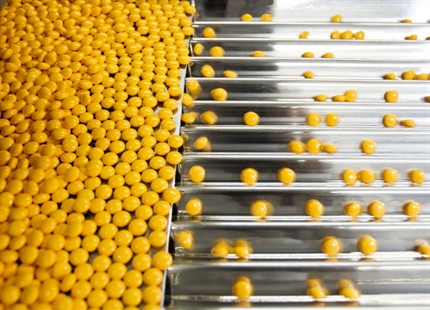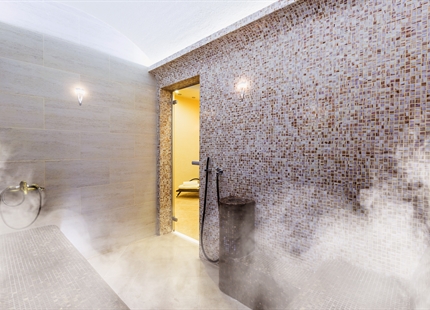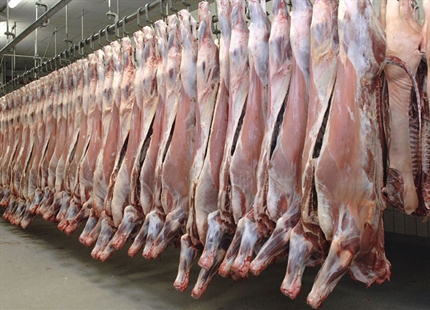Why Humidify... For Crop and Produce Storage
Food depends on moisture, just like people do. Produce contains up to 50% water and if products are stored too dry and too warm, vaporization increases. This means that the produce dries out, just as humans might dehydrate in dry and warm surroundings.

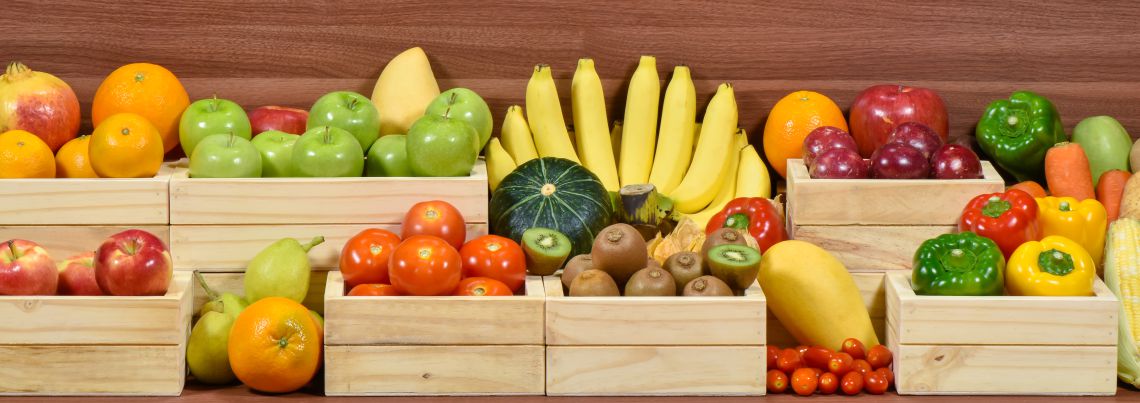



Longer Lasting Produce
When crops, particularly salad vegetables, are harvested in the summer months, the crops are at whatever temperature pertains on that day. For the crop to reach the customer it has to be kept fresh and, in order to do this, the crop is cooled very rapidly to between 2 and 4°C. If the crop has been harvested at >20°C, the degree of cooling required to bring the crop to storage temperature will damage the crop.
To counter this, moisture is added during the chill down period. However it is not possible to humidify during the whole chilling period as the duty requirement would be so high that it is not commercially viable.
The humidification is therefore timed to operate when the cooling is off, to give a fog in the store so that the crop can reabsorb moisture from the air and also to provide residual moisture to prevent moisture loss from the crop during the next chill cycle.
The normal cycle is 15 minutes of cooling followed by 5 minutes of fogging, this cycle being repeated until the crop is down to temperature. There is no humidity control for this process and control is achieved by using a timing circuit in the plant control panel that runs the humidifier. It is critical that the fans from the chiller plant run all the time during this process so that the air distribution paths are maintained.Facts About Storing Produce
Your produce can last for a long time, but it depends on how you store it. See below for information about the best way to store certain products.
LETTUCES should be stored in a plastic bag in the refrigerator and will keep longer if carefully rinsed. Dip the lettuce leaves in water and drain thoroughly before storing.
TOMATOES lose their flavor and won’t ripen if they are stored in the refrigerator. It is therefore a good idea to put them in a bowl on the kitchen counter together with other fruits that also need to ripen – e.g. avocados or bananas.
HERBS in pots can last for a long time if they are generously watered. It is a bit more difficult with herbs in bundles. They should be kept in a plastic bag in the refrigerator with a few drops of water to keep the whole bundle moist. They only last a few days if you rinse them before storage.

APPLES & PEARS do not keep very long at room temperature. If you don’t have room in the refrigerator, put them in a polystyrene box in a cool, dark place to slow the ripening process.
MELONS keep well at room temperature and lose their flavor if stored in the refrigerator. Once you have cut them, however, they must be stored in the refrigerator.

Benefits of Condair humidification in crop storage include:
- Improved storage humidity reduces product weight loss and increases freshness.
- Longer shelf life and extension of storage time.
- In-depth experience in agricultural application development around the globe.
- Unique product flexibility to address varying customer needs.
- Low energy solutions to minimize upkeep costs while improving humidity control.
- Full service ranging from expert advice, design, supply and installation to commissioning, maintenance and spares supply.










Contact us now to learn more about humidity for crop and produce storage...







Other industries where Condair delivers vital humidity control
Why Humidify... For Schools
Proper humidification in schools can reduce absenteeism by 20%.
Read moreWhy Humidify... For Pharmaceutical Manufacturing
By ensuring you have proper humidification levels in your pharmaceutical manufacturing facility you will Increases efficienc...
Read moreSpa & Wellness
Relax and enjoy the highly innovative steam bath systems from Condair
Read moreDehumidifiers for military storage
Using dehumidifiers in military storage facilities is essential to prvent corrosion and damage to expensive military hardwa...
Read moreWhy Humidify... For Abattoir
Maintaining a high humidity during the initial chill down of a carcass can reduce weight loss to under 1%.
Read moreArchives & storage
Proper humidity control is an essential element for long-term preservation.
Read moreWhy Humidify... For Retirement & Nursing Homes
In cold seasons when heating systems dry the internal atmosphere the air can often drop below 40% relative humidity (RH). At...
Read moreWhy Humidify... For Convention Centers
When hundreds or even thousands of people gather in a space such as a conference center without proper humidity control, rel...
Read moreWhy Humidify... For Museums
Dry air absorbs humidity from objects, their weight is reduced and they contract. In the case of humid air, it is the other ...
Read more